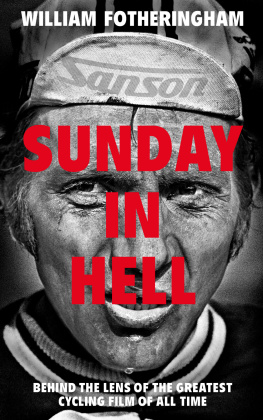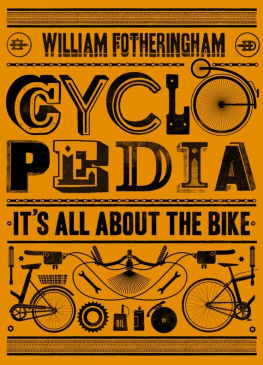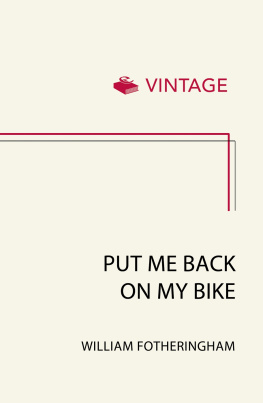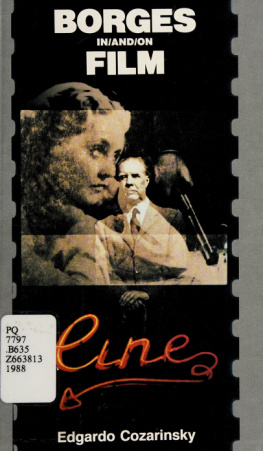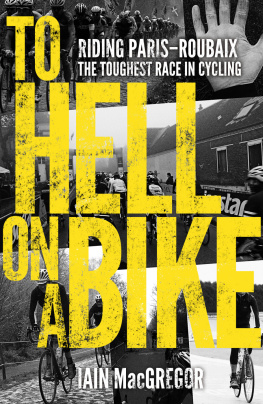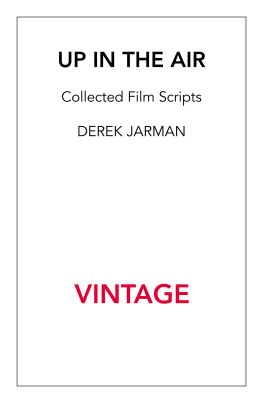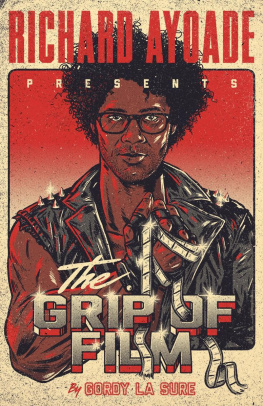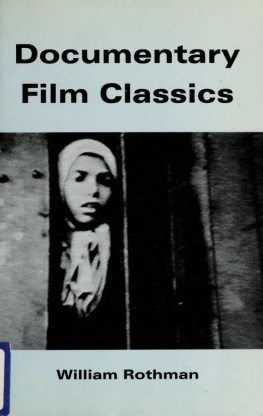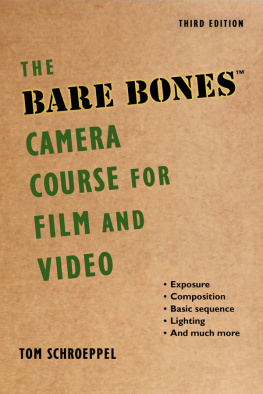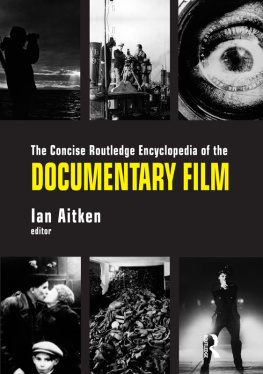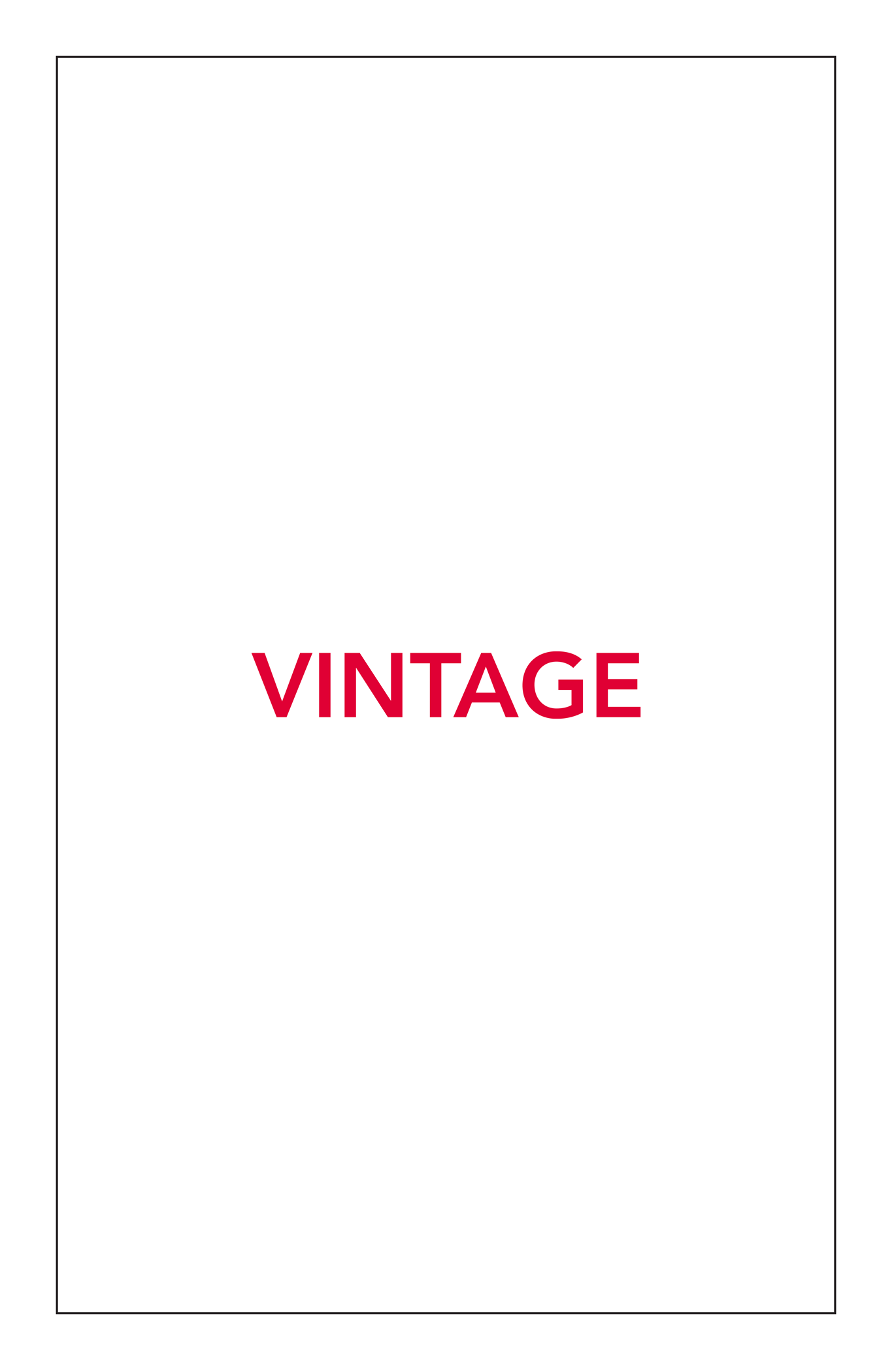CONTENTS
ABOUT THE BOOK
The ParisRoubaix Classic. 273 kilometres of torment across the bone-crunching pav of northern France.
In 1976 the avant-garde Danish film director, Jrgen Leth, embarked on an ambitious project to capture the spirit of this spectacular and cruel one-day race. The resulting film, A Sunday in Hell, has become the most admired cycling documentary of all time, and its revolutionary camera and sound techniques have forever changed the way the sport is viewed on screen.
The film centres around legends including Eddy Merckx, Roger De Vlaeminck, Freddy Maertens and Francesco Moser, capturing not just their experiences from the saddle, but also the mood of a nation and its relationship with the most punishing of the Spring Classics.
Sunday in Hell looks at the men, the method and the places behind the film. It observes the creativity of Leth and his collaborators, explores the lives of riders such as unlikely winner Marc Demeyer and revisits locations which have changed little to this day.
ABOUT THE AUTHOR
William Fotheringham is the number-one bestselling author of Merckx: Half Man, Half Bike. He writes for the Guardian and Observer on cycling and rugby and is the critically lauded author of Fallen Angel, Roule Britannia, and Put Me Back on My Bike, which Vlo magazine called the best cycling biography ever written. A racing cyclist and launch editor of Procycling and Cycle Sport magazines, he has reported on almost thirty Tours de France.
LIST OF ILLUSTRATIONS
. Director Jrgen Leth with cyclist Ole Ritter (Heine Pedersen)
. Jrgen Leth on the site of the 1976 Paris Roubaix race (Jrgen Leth)
. Italian champion Francesco Moser leads reigning world champion, Dutchman Hennie Kuiper (Offside/Presse Sports)
. Roger De Vlaeminck waves a motorbike and cameraman out of his way on the Neuvilly hill (Offside/Presse Sports)
. The Neuvilly hill today (Authors own)
. The Gypsy in the Roubaix showers (John Pierce/Photosport International)
. The Roubaix showers today (Authors own)
. Cameraman Dan Holmberg prepares for a day of filming (Dan Holmberg)
. Albert Bouvet contemplates his beloved cobbles during a route recce in winter 1993 (Graham Watson)
. David Saunders, the voice of the film for English speaking fans (John Pierce/Photosport International)
. The finish sprint in Roubaix (Offside/Presse Sports)
. Marc Demeyer celebrates victory (Offside/Presse Sports)
. Demeyer congratulated by Lomme Driessens (Offside/Presse Sports)
. The 1976 winners plaque in the Roubaix showers (Authors own)
. Demeyers grave in Outrijve, West Flanders (Authors own)
. Chemin de Bourghelles (Authors own)
. The former Caf de la Place on Avenue Desandrouins, Valenciennes (Authors own)
. Freddy Maertens, West Flanders, September 2017 (Authors own)
. The author and Jrgen Leth, Copenhagen, September 2017 (Authors own)
Jorgen Leth and Dan Holmbergs notebooks reproduced courtesy of Danish Film Institute
Every effort has been made to trace and contact copyright holders. The publishers will be pleased to correct any omissions or mistakes in future editions.
To the memory of Albert Bouvet, without whom the ParisRoubaix we know and love today would not exist in its current form.
A NOTE ON THE TIME CODES AND VERSION OF FILM
Throughout this book you will find in the margins time codes which relate to key moments in A Sunday in Hell. There are at least three versions extant of the film that I know of, on DVD and other media. These time codes relate specifically to the Danish Film Institute DVD issued in the box set Jrgen Leth 2: Sports Films.
PRELUDE: THE LOVE AFFAIR
0:12 We start with the sound of a chain, the tick-tick-tick of the links running over the bar that has been thrust into the gap between the drop-outs of the silvery frame as a mechanic lovingly brushes the transmission with diesel. After fifty seconds, the camera pans upwards to the mans face. We dont know to whom the bike belongs or, initially, what make it is. We never learn the identity of the mechanic; we are aware only that he is intent on his work. We can eventually surmise, from his green jersey, that he belongs to the Sanson team but we can only do this in hindsight; as we watch initially, the colour means no more than the images. A minute in, the mournful sound of a cello starts up.
As we wait to find out what is going on, we are allowed to feast our eyes for a full three minutes on the finest products from Campagnolos Italian stable: a three-quarters rear shot of the finely sculpted Record chainset, the black anodised pedal with its perfectly arranged leather toestrap, the bars waiting to have tape wound onto them. The cameramen, Henrik Herbert, has captured the mechanics total involvement so lovingly, so lingeringly, that it feels almost fetishistic. Intent though he is, the mechanic is still brisk as he rotates the cranks, checks the tyres, taps the brake blocks into place with a hammer, puts a wheel into the rear dropouts and finally runs through each gear. Click. Click. Click. Tap tap. Brush brush. Whirr whirr.

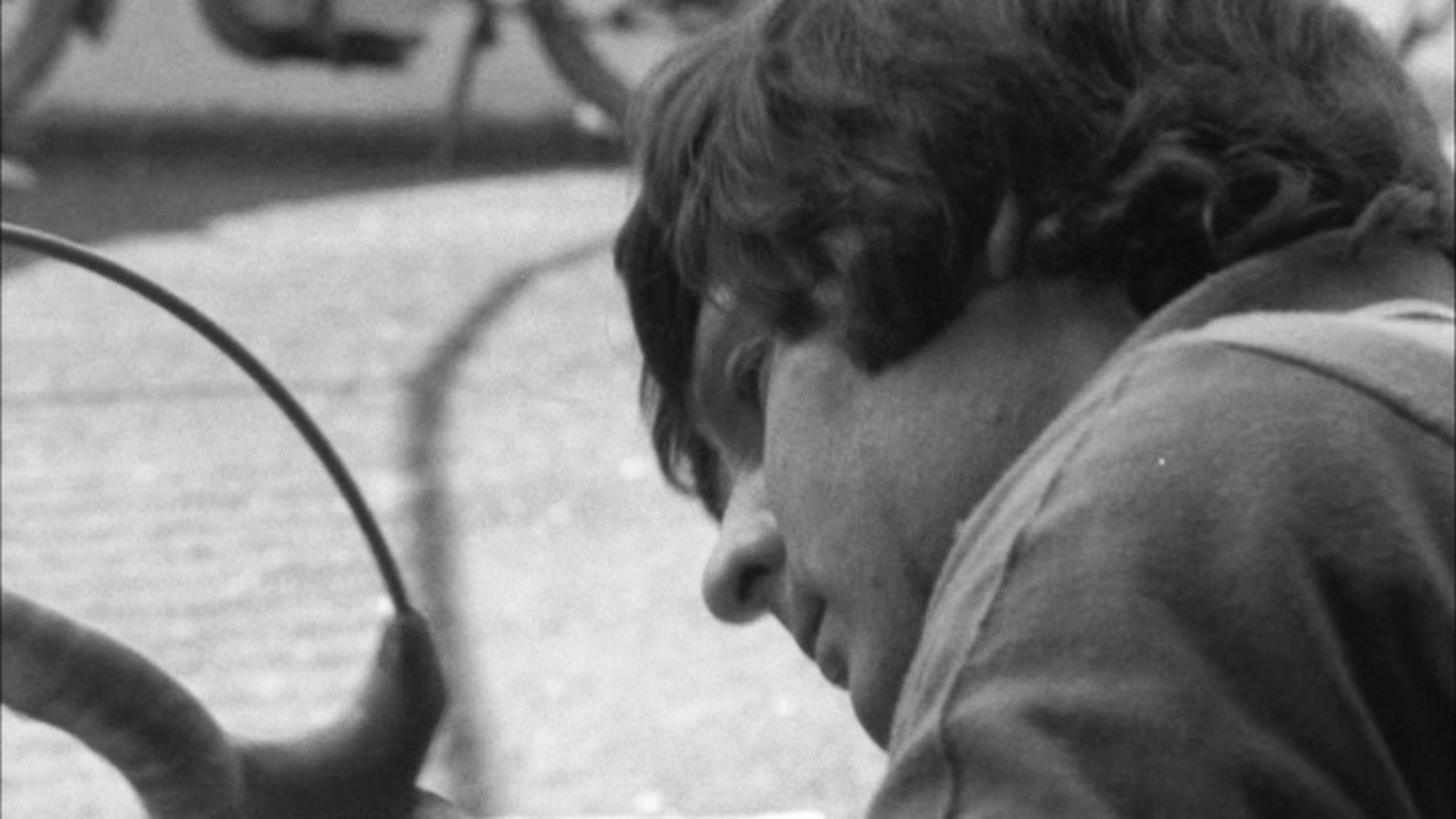
It takes nearly two minutes for the credits to come up, and another minute and a half before we get any sense of what might be going on, as David Saunders intones the opening words on the English soundtrack. Nearly four minutes go past before the bike race, ParisRoubaix, even merits a mention. All this time there is sound and image and wonder. Even if we know as we most probably do on first viewing that this film is about the Hell of the North, we are made to wait before we enter it.
Something is brewing. Something is building.
Its the afternoon of Saturday the tenth of April. Roger De Vlaeminck arrives at the Brooklyn teams hotel in Lamorlaye, north of Paris
In 2010, I was asked to act as the compere when a Bristol film festival ran a screening of the film A Sunday in Hell, the Danish director Jrgen Leths full-length documentary account of the 1976 ParisRoubaix. We watched the film on the big screen a rare enough event in itself after which I hosted an audience question-and-answer session with Leth, who had travelled from Denmark just for us.
We all knew the race: ParisRoubaix is not cyclings most celebrated one-day Classic for nothing. Its reliance on archaic cobbled lanes nicknamed the Hell of the North makes it the stand-out event in a sport that hinges primarily on the interaction of man, bike and landscape, and where the fundamental premise is extreme: asking man and bike to do things they are not intended to do. ParisRoubaix is cyclings Cape Horn, said the double winner Marc Madiot in other words, its ultimate challenge adding that, in an era of cycling by computer it sublimates the artists who use pen on paper. Its as beautiful as a parchment manuscript. This race is anachronistic, but glorious.

